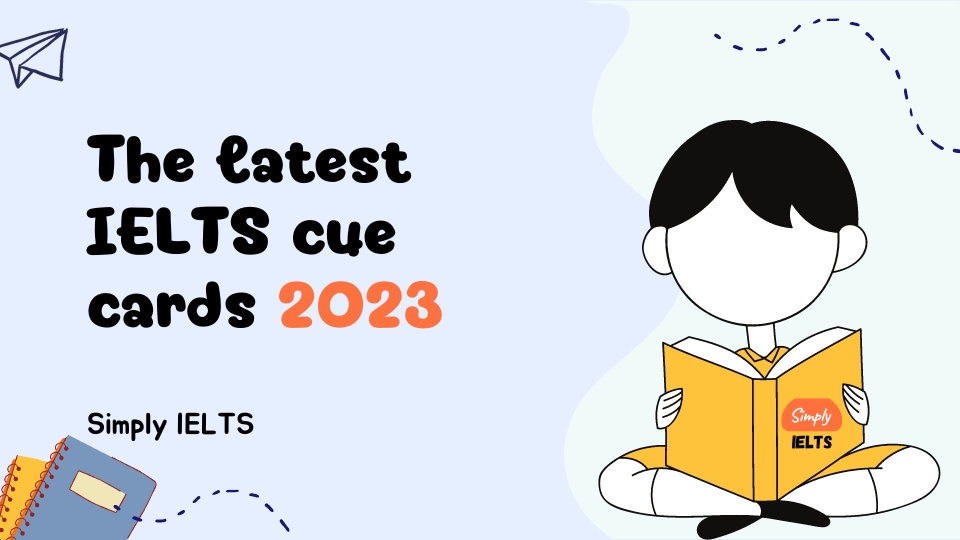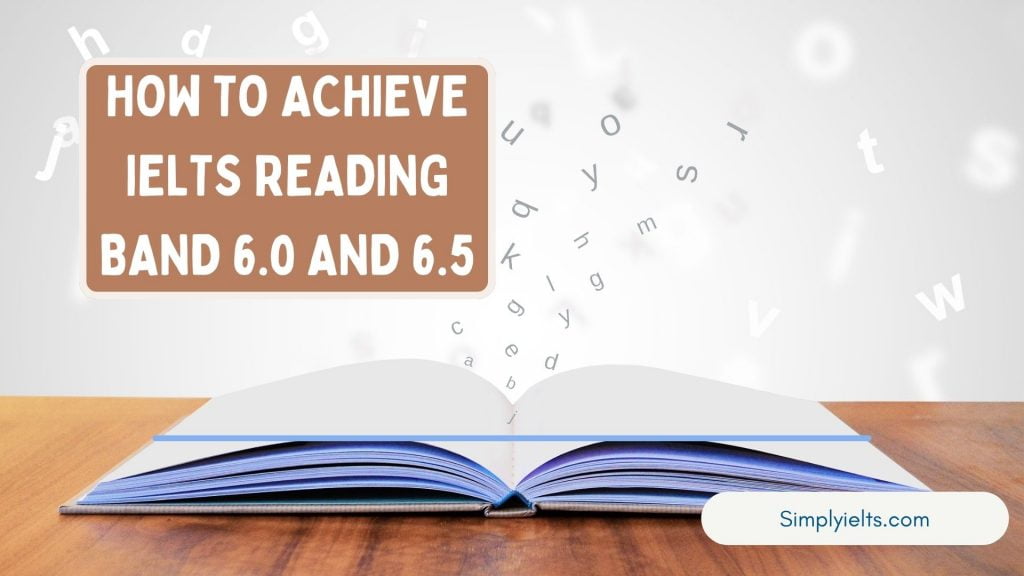IELTS Success: The Ultimate Study Guide

IELTS Success: The Ultimate Study Guide

Are you planning to take the International English Language Testing System (IELTS) and want to increase your chances of success? Look no further!
This ultimate study guide from simply IELTS is packed with valuable tips and resources to help you prepare for the IELTS and achieve your desired score.
From familiarizing yourself with the test format and content, to practicing and using effective test-taking strategies, this guide covers it all.
We also provide an overview of the various resources available to help you prepare, including official preparation materials, online practice tests, private tutoring, and study programs. Follow this guide and you’ll be well on your way to IELTS success!
What is the IELTS?
The International English Language Testing System (IELTS) is a widely-recognized English language proficiency test that is used for academic, professional, and immigration purposes. It is accepted by universities, professional organizations, and government agencies in more than 10,000 locations around the world. Each year, over 3 million people take the IELTS in over 140 countries.
Why is the IELTS important?
For many people, the IELTS is an important step towards achieving their academic, professional, or immigration goals. A high score on the IELTS can open doors to top universities, prestigious professional organizations, and countries with strict immigration policies. It is therefore essential for test takers to be well-prepared and to aim for the highest possible score.
How can I achieve success on the IELTS?
Achieving success on the IELTS requires a combination of knowledge, skills, and strategy. Here are some key tips for IELTS success:
1. Familiarize yourself with the test format and content
The IELTS consists of four sections: Listening, Reading, Writing, and Speaking. It is important to be familiar with the format and content of each section, as well as the types of tasks and questions that you will encounter.
2. Practice, practice, practice
The best way to improve your skills and increase your chances of success on the IELTS is to practice as much as possible. This means taking sample tests, completing practice exercises, and familiarizing yourself with the types of tasks that you will encounter on the actual test.
3. Learn from your mistakes
When you practice for the IELTS, it is important to analyze your mistakes and learn from them. This means identifying your weaknesses, understanding why you made mistakes, and finding ways to improve.
4. Get plenty of rest and arrive at the test center well-rested
The IELTS is a demanding test that requires concentration and mental stamina. It is therefore important to get plenty of rest before the test and to arrive at the test center well-rested and alert.
5. Use effective test-taking strategies
There are many strategies that you can use to improve your performance on the IELTS. These strategies include time management, skimming and scanning, and paraphrasing. It is important to learn and practice these strategies in advance of the test.
15 tips to prepare for IELTS test effectively
1. Use authentic materials to practice
Reading and listening to authentic materials, such as news articles and podcasts, can help you get accustomed to the types of texts and recordings that you will encounter on the IELTS. This can also help improve your overall English language skills and comprehension.
2. Focus on language skills and strategies
In addition to practicing the specific tasks and question types on the IELTS, it is important to also focus on improving your general English language skills and strategies. This includes grammar, vocabulary, pronunciation, and comprehension. Consider hiring a tutor or joining a study group to get personalized feedback and support.
3. Use online resources wisely
There are many online resources available for IELTS preparation, including sample tests, practice exercises, and study guides. It is important to choose reputable and reliable sources, and to use these resources wisely, rather than relying on them entirely.
4. Get feedback from a teacher or tutor
Receiving feedback from a teacher or tutor can be very helpful in identifying your strengths and weaknesses and in finding ways to improve. Consider hiring a tutor or joining a study group to get personalized feedback and support.
5. Manage your time effectively
The IELTS is a time-limited test, and it is important to manage your time effectively in order to complete all tasks and answer all questions. Practice pacing yourself and prioritizing tasks to make the most of your time on test day.
6. Stay motivated and focused
Preparing for the IELTS can be challenging, and it is important to stay motivated and focused throughout the process. Set achievable goals, reward yourself for progress, and seek support from friends, family, or a tutor to help keep you on track.
7. Take a full-length practice test
Taking a full-length practice test can help you get a sense of what to expect on test day and identify areas where you need to improve. Make sure to simulate test conditions as closely as possible, including timing yourself and completing the test in one sitting.
8. Use the practice tests to your advantage
When you take practice tests, use them to your advantage by analyzing your mistakes and learning from them. Identify your weaknesses and focus on improving them. Practice tests can also help you get a feel for the types of tasks and questions you will encounter on the actual test.
9. Understand the scoring system
The IELTS uses a nine-band scoring system to evaluate test takers’ English language proficiency. It is important to understand how the scoring system works and what score you need to achieve your academic, professional, or immigration goals. This will help you set realistic goals and focus your preparation efforts.
10. Consider taking a preparation course
Enrolling in a preparation course can be a helpful way to get structured and personalized help as you prepare for the IELTS. These courses can provide you with the knowledge and skills you need to succeed on the test, as well as support and motivation to stay on track.
11. Manage your stress and anxiety
Test-taking can be stressful, and it is important to manage your stress and anxiety in order to perform at your best on the IELTS. Consider practicing relaxation techniques, such as deep breathing or meditation, to help calm your nerves on test day.
12. Create a study plan
To effectively prepare for the IELTS, it is important to create a study plan that fits your needs and schedule. This plan should include specific goals, tasks, and deadlines, as well as a variety of study methods and materials. By following a structured plan, you can ensure that you are making progress and stay on track towards your goals.
13. Simulate test day conditions
To get a better sense of what to expect on test day, it is a good idea to simulate test day conditions as closely as possible when you practice. This means timing yourself, completing the practice tests in one sitting, and following the same test-taking procedures as on the actual test.
14. Take care of your physical and mental health
Preparing for the IELTS can be demanding, both physically and mentally. It is important to take care of your health by getting enough sleep, exercising regularly, and eating well. Don’t forget to take breaks and engage in activities that you enjoy to help keep your mind and body healthy.
15. Ask for help if you need it
If you are having trouble preparing for the IELTS, don’t hesitate to ask for help. This could include seeking support from friends, family, or a tutor, or enrolling in a preparation course
What resources are available to help me prepare for the IELTS?
There are many resources available to help you prepare for the IELTS. These include:
1. Official IELTS preparation materials
The British Council, the organization that administers the IELTS, offers a range of official preparation materials, including sample tests, practice exercises, and study guides. These materials are based on the actual test format and content and are an excellent resource for test takers.
2. Online practice tests and exercises
There are many websites and apps that offer online practice tests and exercises for the IELTS. These can be a convenient and affordable way to prepare for the test. Just be sure to choose reputable and reliable sources.
3. Private tutoring and study programs
If you prefer more personalized or structured help, you may want to consider hiring a private tutor or enrolling in a study program. These options can be more expensive, but they can also be very effective in helping you achieve your desired score.
4. IELTS study groups and forums
Joining an IELTS study group or participating in online forums can be a great way to connect with other test takers and share resources and tips. These groups can also provide motivation and support as you prepare for the test.
Conclusion
The IELTS is an important and challenging test that requires a well-planned and dedicated approach to preparation. By following the tips and using the resources outlined above, you can increase your chances of success and achieve your academic, professional, or immigration goals.







Responses